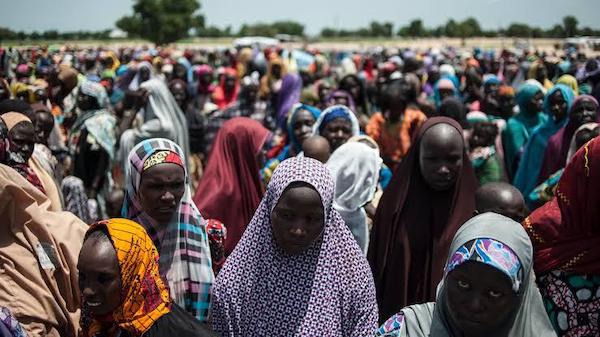News
70 out of every 100 persons in North-East Nigeria are poor -World Bank

The World Bank has revealed that more than 70 per cent of North-East residents in Nigeria are poor.
This was contained in a new report titled: ‘The Lake Chad Regional Economic Memorandum: Development for Peace’, which was released by the World Bank.
The report specified that the North-East suffers from adverse crisis, and climate crisis which makes for underdevelopment in the region.
According to the report, the region and other regions around Lake Chad are plagued by a high poverty rate, low human capital and poor access to basic services.
The report read: “The region is characterized by high rates of poverty, low human capital, and poor access to key services. In the last three decades, economic activity and household incomes have been decreasing.
“Communities in the vicinity of the lake are lagging compared with the socio-economic standards in other parts of Cameroon, Chad, Niger, and Nigeria, which are already underperforming compared with other developing economies worldwide.
“For instance, in Nigeria’s North East, which flanks the lake to the southwest, poverty rates are estimated at over 70 per cent, almost double the rate in the rest of the country.
READ ALSO: More than 2m displaced by insurgency in Nigeria’s North-East – EU
“In Nigeria, the poverty rate in the Lake Chad region (72 per cent) is nearly twice as high as the rate in the rest of the country (38 per cent); part of this spatial gap is likely explained by the devastating impact of the Boko Haram conflict in Nigeria’s North East.
“Poverty is most prevalent in the parts of the Lake Chad region that lie within Nigeria. The poverty rates in Adamawa and Yobe states reach as high as 74 per cent and 70 per cent, significantly higher than the national average of 38 per cent.
“Of the 12.8 million people in need of humanitarian assistance, 10.6 million are in the three most highly affected states, Adamawa, Borno, and Yobe, in Nigeria’s North East.
“The national average rate of access to electricity in Cameroon, Chad, Niger, and Nigeria is 62 per cent, 8 per cent, 14 per cent, and 59 per cent, compared with an estimated 20 per cent, 2 per cent, 10 per cent, and 38 per cent in the Lake Chad region, respectively.”
Join the conversation
Support Ripples Nigeria, hold up solutions journalism
Balanced, fearless journalism driven by data comes at huge financial costs.
As a media platform, we hold leadership accountable and will not trade the right to press freedom and free speech for a piece of cake.
If you like what we do, and are ready to uphold solutions journalism, kindly donate to the Ripples Nigeria cause.
Your support would help to ensure that citizens and institutions continue to have free access to credible and reliable information for societal development.






















